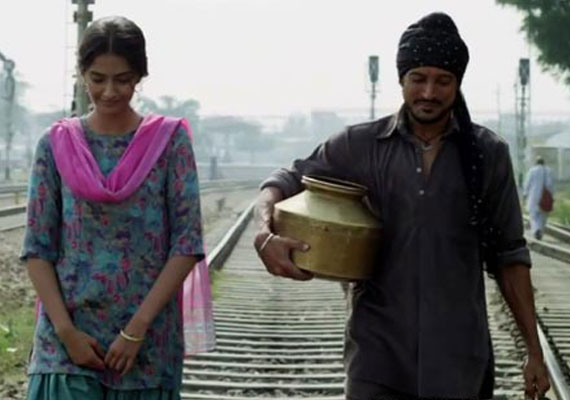

But that reaction costs him the race.Īs past and present merge into a single moment, the man on the black horse cuts off his father's head from his torso in one swift slash of the bloody sword. Milkha has a deja vu moment: He looks back to see a militant on a black horse chasing him with a sword. Milkha remembers the words his father had screamed, urging him to run for his life during that fateful day of the massacre. The voice of his coach reverbs and morphs into his father's voice from the past: ' Bhaag puttar, bhaag ( run son, run)'. The film opens with Milkha flying off the blocks at the 1960 Rome Olympics.Īround half way, his coach shouts, ' Bhaag Milkha, bhaag'.

I knew that I had found my story and that night wrote the opening scene of the film and the last scene of the film. In that one fraction of a second, three athletes overtook him. That's when he committed a tactical error and looked back to see by how much he was leading. He was leading in the 400 metre race up to 250 metres. Gradually, he started trusting me and poured his heart out.ĭuring these narrations, I noticed tears in his eyes on two occasions: First, when he spoke about the massacre of his family during the ethnic violence that followed Partition, and second, when he lost the gold medal in the finals of the 400 metres at the Rome Olympics in 1960, where he was one of the favourites to win. The couple was both receptive and courteous. Nimmi Aunty would spoil me with home-cooked meals. We would speak over lunch until 4 pm, then meet again for an early dinner and talk some more. Every morning, at 11 am, Milkha would finish golfing at the Chandigarh Golf Club, wear his signature suit, red turban with a matching red tie and sit down with me at noon sharp. Photograph: Kind courtesy Rakeysh Omprakash Mehra/Instagram IMAGE: Rakeysh Omprakash Mehra with his inspiration, the late Milkha Singh.

He then went on to create a national record in athletics that remained unbroken for almost 40 years! He also won a double gold medal in the Asian Games, broke the Commonwealth Games record with a gold medal and then set a world record in 400 metres.Ī couple of days later, I took a flight to Chandigarh to meet one of India's greatest athletes and his wife Nirmal Kaur (Nimmy Aunty for me). What inspired me was how a 12 year old, who witnessed the massacre of his family, was pushed and shoved into India and lived with no roof to sleep under and no food in his stomach. He escaped and went on to cross the border and somehow reunited with his sister. Milkha had lost his childhood to Partition. He read it and, the very next day, came to office and started telling me the story in the book. Tandon's uncle, Babbu Mama, knew Gurmukhi. I immediately gave it to Rajiv Tandon ( who went to become one of the produers of Bhaag Milkha Bhaag) to figure out if he knew someone who could read it. I picked up the book only to realise that it was an autobiography written and self-published by Milkha Singh in Gurmukhi (Punjabi script). At the end of our meeting, he gave me the autobiography of Milkha Singh.Īditya went on to make Uri: The Surgical Strike, one of the biggest blockbusters of 2019, which Ronnie Screwvala produced. This was a comedy which he wanted to direct and my company to produce. One day, a young director, Aditya Dhar, visited me to narrate a script. IMAGE: Milkha Singh signs the Bhaag Milkha Bhaag poster.


 0 kommentar(er)
0 kommentar(er)
